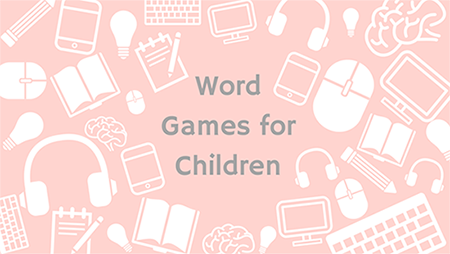Word Games for Children
Written by Taylor Quinn
Published on March 21, 2016
 Word games are a fun and useful way to get your child to practice their skills outside of school. Practice is an essential part of the Orton-Gillingham method, so in order to get the most out of your child’s sessions, everyday practice is necessary. After a long day at school, more academic work can become frustrating, but educational games are both fun and valuable. The following games are focused for kids eight and older.
Word games are a fun and useful way to get your child to practice their skills outside of school. Practice is an essential part of the Orton-Gillingham method, so in order to get the most out of your child’s sessions, everyday practice is necessary. After a long day at school, more academic work can become frustrating, but educational games are both fun and valuable. The following games are focused for kids eight and older.
PARTNER GAMES
Words with friends
This game resembles Scrabble but your opponent does not have to be in the room with you. Your child will be tasked with making words out of the letters they are given and the letters on the board. Words with friends practices spelling, which is pivotal to a dyslexic’s development.
 Draw Something
Draw Something
Draw Something is like electronic Pictionary. Your remote partner draws out a word in a set amount of time for you to guess– and vice versa. Visualization is important for dyslexics to practice so that they can associate an image with a word. This game will help your child with spelling and vocabulary. This game can also be played with pen and paper at home.
INDIVIDUAL GAMES
Knoword
This game will most likely be challenging for your dyslexic child, but a challenge can be good! The object of Knoword is to complete as many words as possible by guessing a word based on its definition and first letter. This game requires quick thinking skills and will exercise their vocabulary, spelling, analytical, observational and typing skills.
Boggle Bash
In this game, your child will try and create as many words as they can with their given letter tiles before their time is up. This is great spelling and word processing practice.
Lexercise incorporates daily practice games in our online therapy program. We aim to make practicing vocabulary, imagery, spelling, and morphology fun! To learn more about our Lexercise program, speak to a therapist here.
Improve Your Child’s Reading
Learn more about Lexercise today.
Schedule a FREE
15-minute consultation

